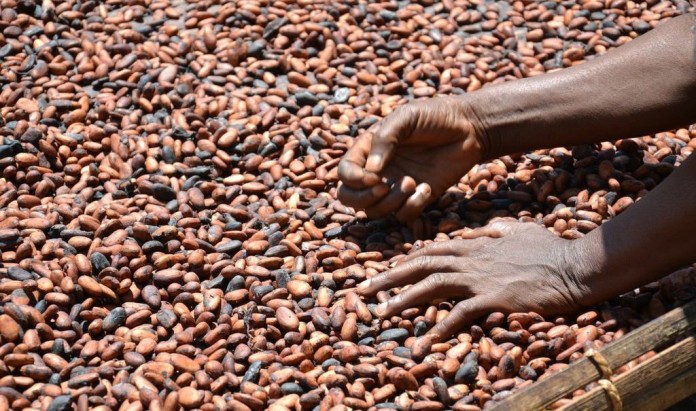Two million, forty-one thousand, three hundred eight-nine signatures and counting.
The names were scribbled by hand on loose sheets of notebook paper. The entire collection was over thirty thousand pages long. While such a compilation might wage cries of environmental wastefulness—and rightly so, perhaps—the organizer insisted upon the bundles of pages, afraid that given the gravity of the petition, had the files been saved on a computer drive, they might mysteriously disappear, never to be found again in the Internet abyss.
This is all hearsay, of course.
We know nothing of the identity of the organizer. She was afraid that she would be set to silence with a machete if her face were to be revealed.
This is also hearsay. No head of state had ever been known to use a machete on a market woman. (That is who everyone assumes to be behind the petition.) We only know that her words ring of urgent necessity. The over two million signatures collected confirm that the current dilemma is in dire need of attention.
Long before the petition, I grew plantains. After a batch fried to a golden yellow brown, the whole room smelled of their sweet oil.
I dried them with a paper napkin and took off to the market to sell. I met someone along the way who offered to take the plantains in exchange for some pineapples, which was wonderful because that meant I no longer needed to travel to the market. What a convenience!
If only the world worked so simply. If only when my country, formerly Ghana but now one of The Rich States, needed something—let’s say, machinery to build—our leaders could just trade plantains for machinery. How simple the world would be, yes? Or maybe not trade for plantains if the other country had no penchant for sweet pleasures, but trade for something else that it preferred, whatever that desire might be.
These days, the world runs in reverse of a clock. If the logic is simple and straightforward like the swiftness of time, it stands against the order of the day. Only if it is convoluted and setting the order of things backward is it established as law.
So instead of my Ghana trading machinery for plantains or sugar cane, she can only get machinery if she gives in exchange a fancy blend of taped confetti—what some call paper money, but really is only strings of confetti melded together in rectangular form.
The question becomes: how does my country get taped confetti when we don’t have the particular brand that the other country requests? The response from that country is to give them cocoa for the taped confetti.
Here I was enjoying the aroma of plantains and the easy way they grew on trees in the garden in the back of my house. But now I could hardly trade anything for plantains unless I, perchance, met a market woman who wanted to trade for pineapples.
Across the grassy lands of the state, now everyone farmed cocoa, even though none of the farmers had any appetite for taped confetti. It was our leaders who wanted to make the trade, which most of us thought was just plain silly. No longer did our leaders have any use for our corn and tomatoes and fish, they told us. Only cocoa.
I had never gone to university, but I knew enough to know that I could not eat and drink cocoa everyday. And the taped confetti our leaders gave in exchange for acres and acres of cocoa was not enough to obtain the food we used to get by farming. We had little left to gather materials for clothing. The taped confetti, which only left us with hollow despair, brought smiles of sparkling teeth to our leaders whose roaring engines we heard far before their massive caravan arrived at our village.
The automobiles were a deep black with silver wheels that glinted in the sun. They wore suit jackets with angled collars and silky ties that stood out against the villagers who were dressed in colorful varieties of Kente.
The villages, by now, were poor, ragged, and dilapidated. This is why, we believe, the lengthy petition against the leaders of The Rich States was started. We used to have enough. Not by any means a lot. But enough. And now. Our bellies went unfilled for long days and nights.
We used to have enough. But now, we’ve had enough.
Our leaders stepped their polished leather shoes onto the dirt road. Their drivers shut the doors and handed them briefcases. They were here to talk business.
“What is this about? Are you out of your minds?”
The leader’s tone was harsh in anger. He opened a briefcase and out flew several pages, which appeared to be photocopied from the lengthy petition.
Two uniformed guards in military garb appeared from the last car, two pairs of handcuffs clutched in their palms.
“Who organized this stunt?”
No one from the village spoke. Not yet. It would be a long night, we knew.
(To Be Continued With Part 2)











Great story. Wonderful reading. This should be a book really. Please give me some more.